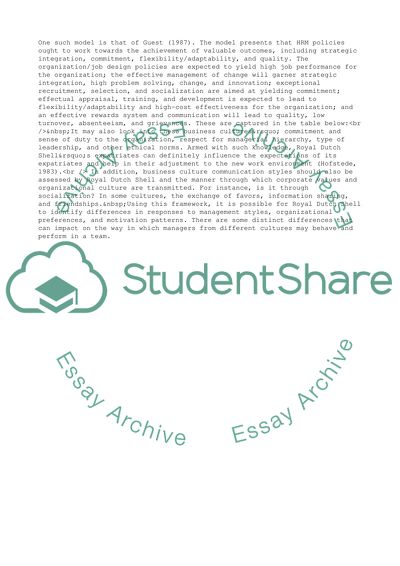Cite this document
(Global Human Resource Management of Royal Dutch Shell Assignment, n.d.)
Global Human Resource Management of Royal Dutch Shell Assignment. https://studentshare.org/management/1705844-international-human-resource-management
Global Human Resource Management of Royal Dutch Shell Assignment. https://studentshare.org/management/1705844-international-human-resource-management
(Global Human Resource Management of Royal Dutch Shell Assignment)
Global Human Resource Management of Royal Dutch Shell Assignment. https://studentshare.org/management/1705844-international-human-resource-management.
Global Human Resource Management of Royal Dutch Shell Assignment. https://studentshare.org/management/1705844-international-human-resource-management.
“Global Human Resource Management of Royal Dutch Shell Assignment”. https://studentshare.org/management/1705844-international-human-resource-management.


